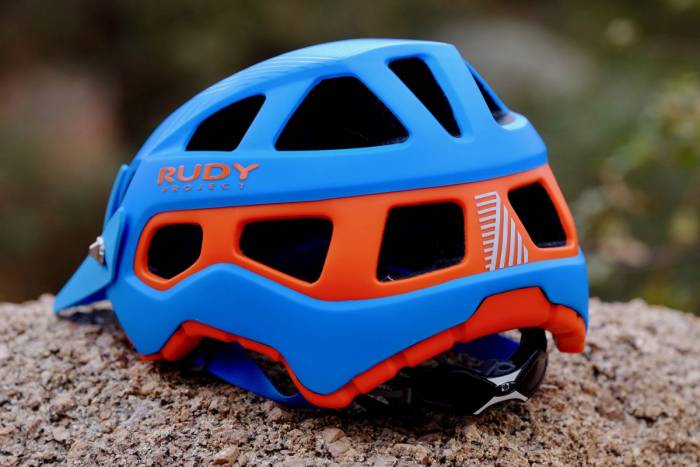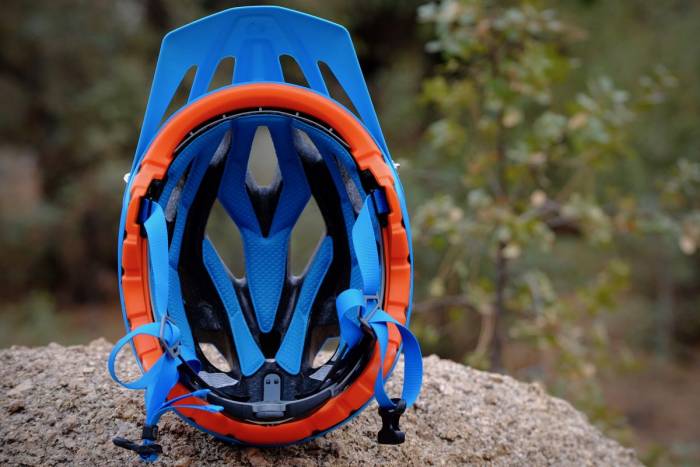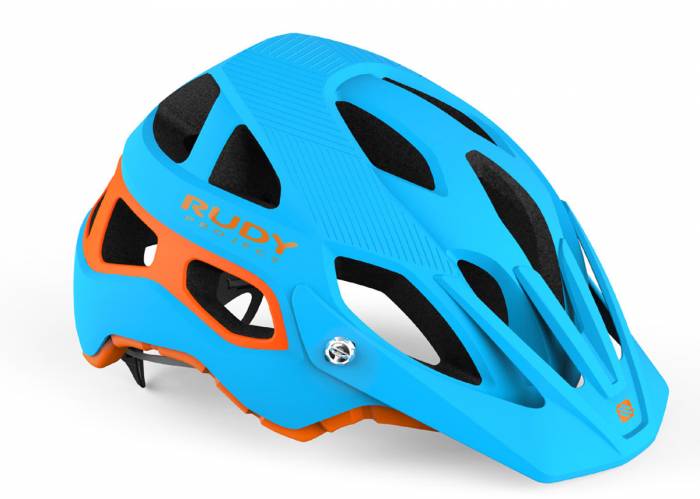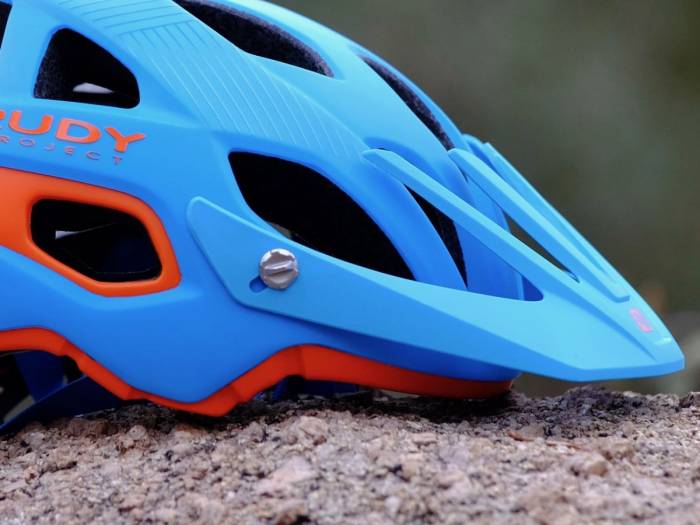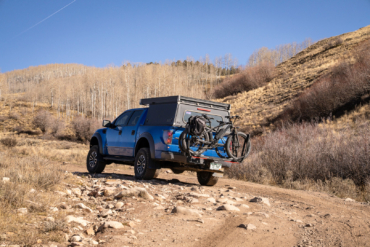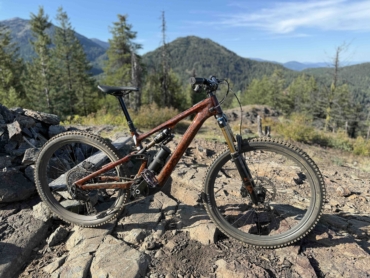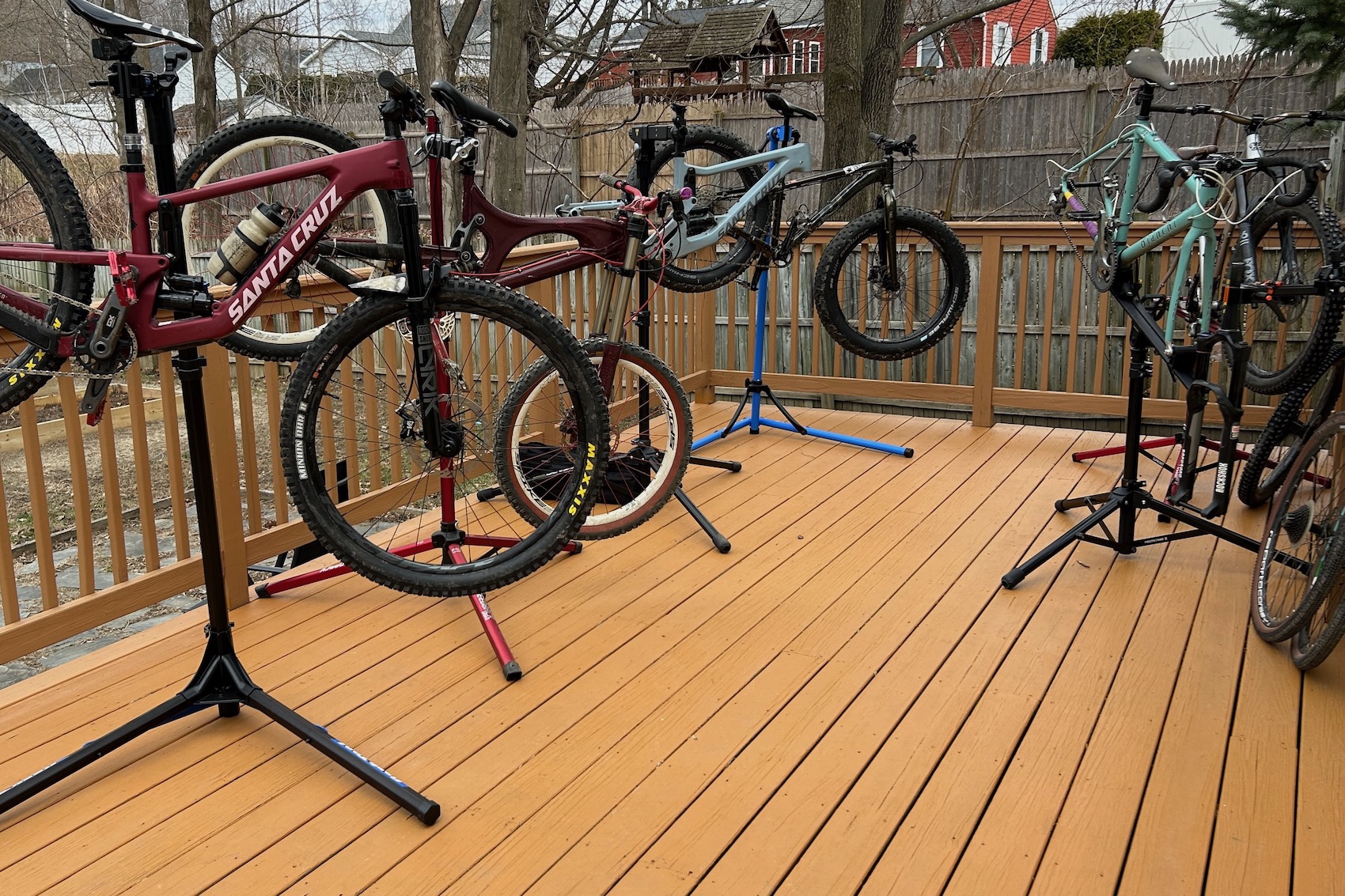We got dirty with Rudy Project’s first trail-specific bike helmet, the Protera, for three months for this review.
Rudy Project has produced high-end sunglasses and helmets for road cyclists since 1985. As dominant as it is on the pavement, the Italian brand is now tossing its hat in the mountain bike ring.
For years, Rudy Project’s only efforts to satisfy the off-road crowd consisted of optional and flimsy clip-on visors. Its new Protera helmet rights that wrong with a dirt-specific design aimed at trail and all-mountain riders. The back of the shell even has a goggle groove, confirming its dirty intentions.
In short: Rudy Project’s first mountain bike helmet, the Protera, is well ventilated, light, comfortable, and safe. But it does have some flaws. Read on for the details.
Rudy Project Protera Helmet: Safe and Comfortable
The most noticeable feature of the Protera is the added occipital coverage at the back of the shell. Pronounced scallops above the ears allow the helmet to sit deep on the user’s brow, with ample temple protection for aggressive riding.
With so much foam wrapped around the rider’s head, Rudy Project had to get clever with ventilation and comfort features. The 18 well-placed vents on the Protera make it one of the coolest trail helmets I have tested.
However, although the forward-facing apertures are well-shaped to swallow big gulps of air, the other ports are not as aerodynamically sculpted.
As a result, speed doesn’t seem to increase the amount of air passing through the helmet. On the upshot, the seven vents atop the crown allow warm air to rise through the top at slower climbing speeds.
Like most European lids, the Protera ships with a mesh insert, which feels a little bulky. Riders less worried about bugs and more concerned with maximum airflow can swap the netting for traditional pads.
Filled with hydrophobic Dry Foam, the helmet doesn’t absorb moisture, thus cutting down on heat buildup. And the X-Static antimicrobial fabric reduces odor, although you will still need to wash the Protera regularly to keep it funk free.
The snug fit accommodates a wide range of head shapes and uses the same single-handed dial integrated into most of Rudy Project’s helmets. On even the choppiest trail, the Protera sits securely in place. The internal retention system has some adjustability on the vertical axis, but I find it sits low on the back of my head.
That causes the helmet to rise just slightly when crouched down with my chin tilted upward. It’s a reminder that the deeper helmets get, the more important it is to try them on before committing to a purchase.
Protera Introduces New Helmet Tech
A first for bike helmets, the strap system in Rudy Project’s Protera attaches to the inner shell with quick-release detachment points.
Rudy says this facilitates easier cleaning and allows riders to exchange straps for different colors. I suspect it also contributes to the Protera’s low-profile design because the nylon webbing does not need to pass through the EPS foam liner.
To keep the overall thickness to a minimum, Rudy built the outer hardshell in two pieces made of contrasting colors. Both components are in-molded with mixed-density EPS foam to reduce bulk without compromising energy absorption and impact protection.
An additional benefit to the two-piece construction is a respectably low weight. Available in two sizes, large and small/medium, the smaller of the two clocks in at just 341 grams. That puts it on the lighter side of the all-mountain helmet spectrum.
Rudy Project Protera: Wobbly Visor
Not surprisingly, I had one quibble with the visor. As superior as it is to Rudy’s previous clip-on gizmos, the Protera’s sun shield is still wiggly and poorly secured to the outer shell.
The two threaded knobs on either side don’t provide enough tension to hold the visor in the desired position. It still flops around and moves easily when bumped. I would have preferred hard detents or a more robust hinge mechanism. A fixed visor would be better than one I have to continually reposition on the fly.
The Wrap Up
For its first trip down the trail, Rudy Project did a fine job with the Protera. It is lightweight, low profile, and well ventilated. Fans of the brand’s sunglasses and helmets now have a sufficiently protective lid to wear onto the singletrack. Sold in white, blue, pink, and black, it retails for $250.
The Protera is now available for pre-order on the Rudy Project e-commerce website, but in limited sizes and colors. The full assortment is scheduled to arrive by mid-spring.
Rudy Project Protera
–Christophe Noel has dedicated his life to exploring as much of the world as he can and by any means possible. When not tapping away at a keyboard as a freelance journalist, or looking through the clear glass of a camera lens, he can be found riding bicycles, motorcycles, or shuffling through an airport on route to his next adventure. He can be contacted at Story@Christophenoel.net.

